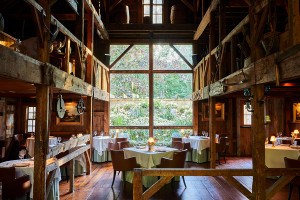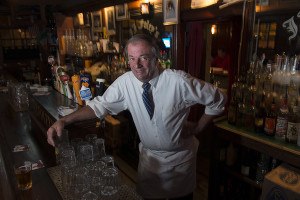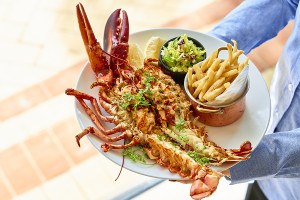Year in Review: 12 Headlines that Defined Boston’s Dining Scene in 2020
Thousands of tragic restaurant closings, one extremely divisive opening, Phantom Gourmet gets booed, and more remembrances from a time to forget.
Well. It’s been a year, hasn’t it?
At this point, it’s almost hard to remember a time when we all crammed around communal tables with friends to share small plates at a favorite restaurant, sardined ourselves into bars crowded with strangers to watch sports played in stadiums full of fans, and generally conducted ourselves like—well, like normal, social human beings who enjoy having fun and giving hugs and breathing and dining in the same general vicinity of others. (Don’t worry, we’ll get back there. Soon.)
In other words, if 2020 passed as a mere blur in your brain, you’re not alone. Wondering exactly how much you may have erased from memory? First, take this quiz to see how well you recall Boston news headlines from the last 12 months. And for a refresher course on the stories that most defined local restaurant news, check out our bite-sized recaps of a dozen food-world developments that earn a page in the yearbook—even if, as with most yearbooks, one look back is probably all we need.
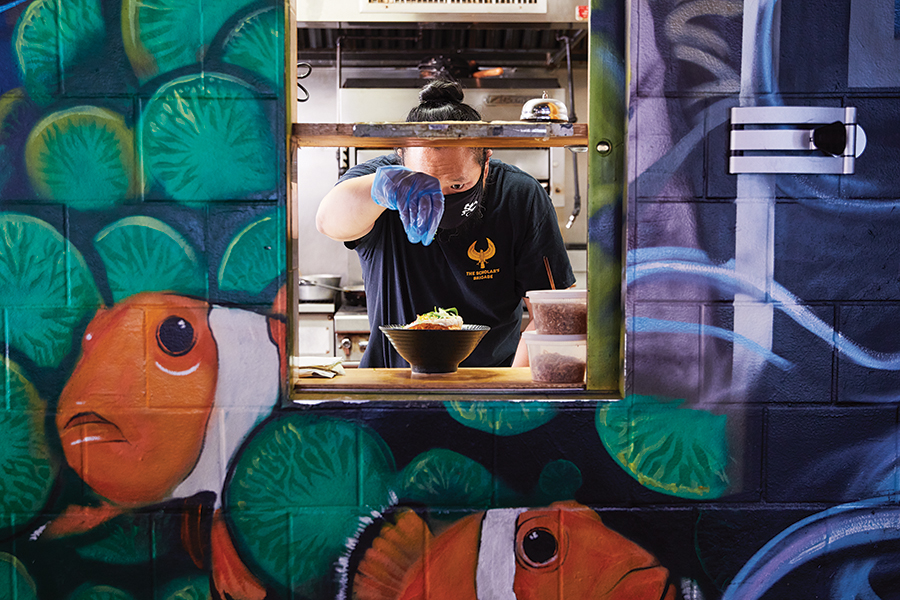
Shōjō owner Brian Moy prepares a dish in the kitchen of his contemporary Chinatown restaurant. / Photo by Pat Piasecki
Chinatown restaurants are hit early and hard by pandemic anxiety—and racism.
It’s hard to remember now, but there was probably a period in the beginning of the year when you assumed all this talk of a pandemic (“corona-what?”) would pass within a few news cycles. Well, we were all proven wrong, of course, and the early impact in Boston’s restaurant-heavy Chinatown served as the canary in the coal mine, so to speak, when it came to predicting how the food-service industry would suffer: By the first week of February Chinatown dining rooms had already turned into ghost towns, and the neighborhood has continued to be particularly hard-hit—owing, in no small part, to racism and xenophobia stoked by a president screaming “China virus!” all over the airwaves. Nonetheless, the community has rallied: For instance, restaurateur (and neighborhood power player) Brian Moy launched a (since-disbanded) delivery service to bring Chinatown eats to diners in the ‘burbs, and the city launched a #WeLoveChinatown campaign to encourage visitors and revitalize restaurants and other businesses.

Image via Getty
All Massachusetts restaurants suspend on-site dining in the first of many business rollbacks.
Tuesday, March 17 was the day that everything changed (at least, officially) for Massachusetts restaurants: Although a number of local eateries had already voluntarily closed their dining rooms by then, admirably biting a bullet to help stop the spread of coronavirus, that’s the date Governor Charlie Baker’s first mandatory restaurant restrictions—foremost, a ban on on-site consumption—went into effect. Although the temporary prohibition was originally to last only until April 6, it wasn’t actually until June that restaurants were finally allowed to dust off their seats. And since then, the ailing industry has been subjected to additional limitations delivered with whiplash-inciting suddenness: Most recently, for instance, restaurants were told they need to kick out all customers by 10 p.m. and, starting Saturday, Dec. 26, limit capacity to 25 percent. Through it all, though, these beleaguered businesses have pivoted time and again, coming up with creative takeout ideas, meal kits, grocery sales, online cooking classes, and other ventures that may last long after this public health emergency is over.
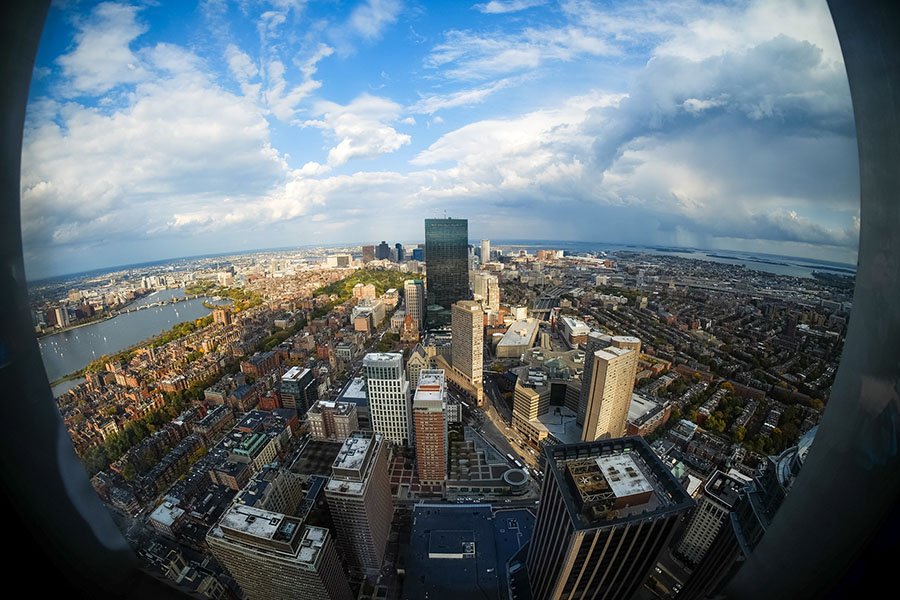
View from the Top of the Hub | Photo by Sean Davis via Flickr/Creative Commons
Top of the Hub closes (not because of COVID-19).
We were all young and innocent in January, with no idea what was to come. So it was a true shocker when word came down then that Top of the Hub, a decades-spanning special-occasions restaurant atop the Prudential Tower, would be closing in the spring (possibly to make way for a three-floor observation deck). Whether you loved it or considered it a tourist trap (or, like me, just enjoyed knowing that it was around), the place was a legitimate landmark—and so, Bostonians flocked to make final reservations for soaking up cocktails with 360-degree skyline views. Little did we know that Top of the Hub’s eventual March shuttering was only the first of many sundowns on the horizon.
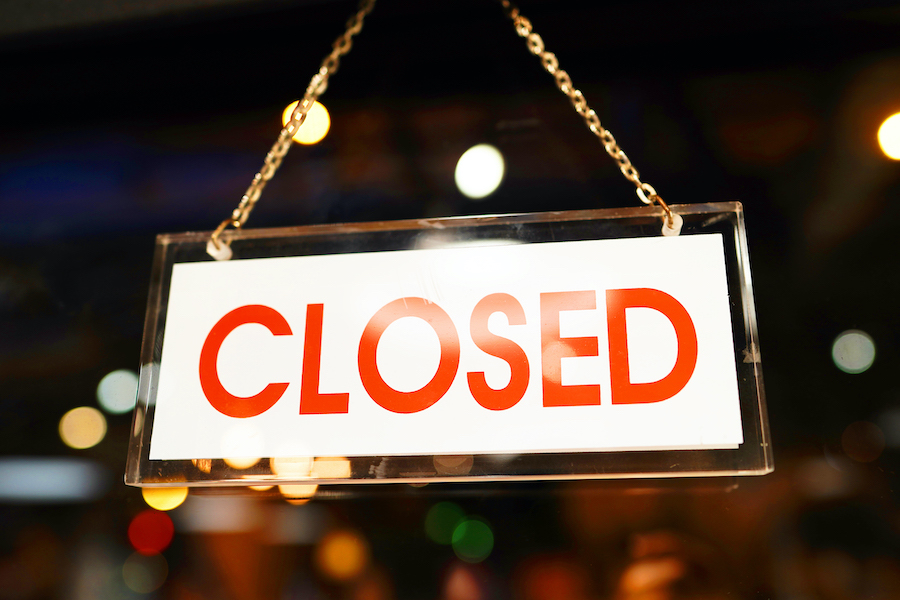
Photo via Getty Images
Nearly 1 in 4 Massachusetts restaurants close (very much because of COVID-19).
So, yeah, about those closures: There’s really no way to overstate the devastation that the pandemic’s economic fallout has had on the Bay State’s restaurant industry. In fact, by the time we published our November issue’s cover feature, a deep dive into this totally transformative year, nearly one-quarter of Massachusetts restaurants had closed, putting more than 200,000 people out of work (one in 10 Massachusetts workers is employed by restaurants). Over the last ten months, as exhausted operators, chefs, servers, and other hospitality staffers work like never before to keep doors open and people employed, we’ve continued to share the stories of their struggles, report on the ways they’ve been stiffed by insurance companies, compile takeout-dining guides to encourage ordering in, and cheerlead for eating out as an act of civic pride. Through it all, though, one thing has become abundantly clear: If local restaurants have any chance of avoiding an “extinction”-level crisis this winter, they need substantive and sustained federal and state help, and they need it yesterday. A $668 million small-business relief plan, announced by Governor Charlie Baker on Wednesday, is at least a step in the right direction.

Nia Grace, cofounder of the Boston Black Hospitality Coalition, at her restaurant Darryl’s Corner Bar & Kitchen. / Photo by Matt Kalinowski for “The Year That Changed Boston’s Dining Scene Forever“
Boston restaurants rally to support desperately ailing businesses and demand social justice.
Not trying to be a Debbie Downer with all these headlines, but there really wasn’t a lot of upbeat restaurant news in 2020. One silver lining, though, has been the camaraderie fostered within an already tight-knit industry. Restaurant workers have come together to support each other and the larger community in truly inspiring ways: They’ve launched countless fundraisers, formed grassroots groups like Mass Restaurants United, which has been pushing for aid from Beacon Hill lawmakers, and—against the backdrop of an energizing year in the Black Lives Matter movement—advocated for racial equity through efforts like the Boston Black Hospitality Coalition. In many cases, they’ve even managed to creatively integrate service-oriented missions into their innovative business pivots. Consider Pagu chef-owner Tracy Chang, who worked with star restaurateur Ken Oringer to launch Off Their Plate, a nationwide initiative to feed frontline healthcare workers while keeping kitchen staff employed, and then collaborated with Mei Mei marvel Irene Li to form Project Restore Us, which makes deliveries of culturally appropriate groceries to working immigrant families.
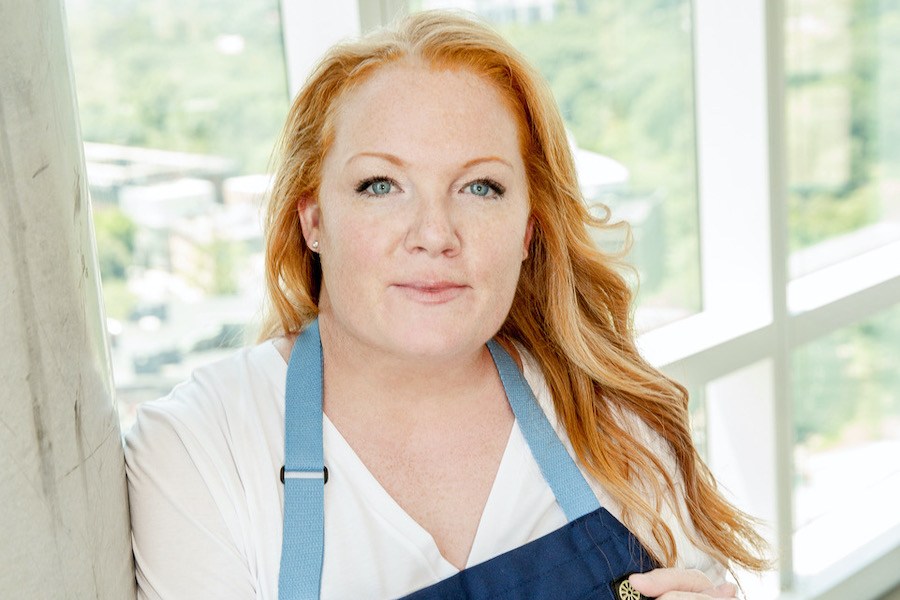
Powerhouse chef and Chopped judge Tiffani Faison earned a nomination from the James Beard Awards. / Photo by Mike Diskin
The James Beard Foundation announces its annual award finalists—if not the winners.
In May, the James Beard Awards (oft compared to the Oscars of the restaurant world) announced its 2020 finalists, and Massachusetts was well-represented. Oleana owner Ana Sortun received a nod in the Outstanding Chef category, while her restaurant group’s pastry guru, Maura Kilpatrick, earned Outstanding Baker consideration for Sofra Bakery. Cassie Piuma of Sarma (our own Best of Boston pick for General Excellence) was nominated for Best Chef, Northeast; so was now-regular Chopped judge Tiffani Faison, for her work at Orfano (glowingly reviewed here). Established duo Jamie Bissonnette and Ken Oringer were jointly nominated for Outstanding Restaurateur, while Mei Mei’s Irene Li was acknowledged as a Rising Star Chef of the Year. Fox & the Knife, another Best of Boston winner helmed by Karen Akunowicz, was recognized as a Best New Restaurant contender, and the transportive, tiki-inspired interior of Shore Leave earned the architects at Hacin + Associates a Design category nomination. Ultimately, though, winners were not announced—an unprecedented decision that was ostensibly about being sensitive to restaurant struggles during the COVID crisis, but also reportedly a response to the institution’s reckoning with systemic bias and problematic chef behavior.
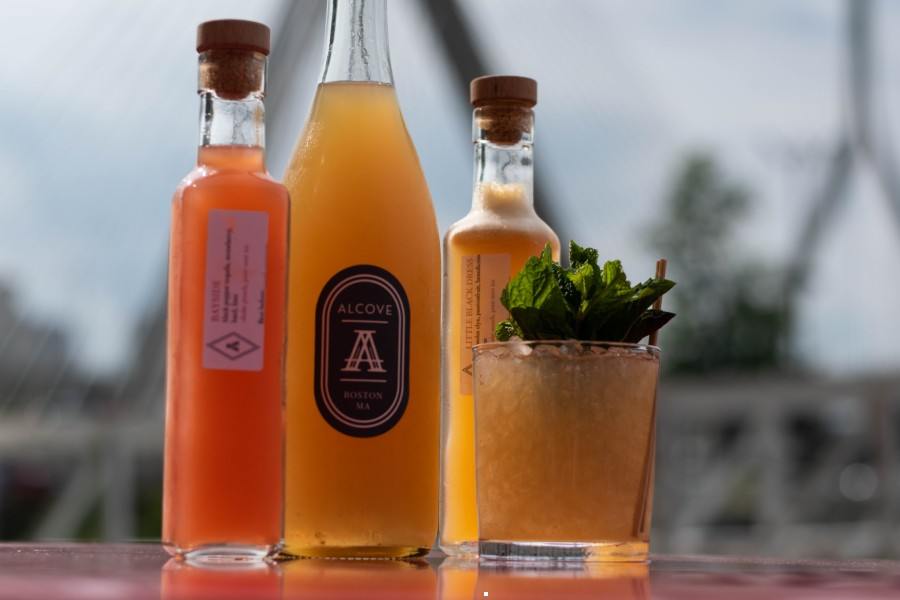
Cocktails to go from Alcove. / Photo courtesy of Alcove
Massachusetts okays restaurants to serve beer and wine—and eventually, cocktails—to go.
We’re not exactly Las Vegas, but Boston has relaxed some of its puritanical booze rules at long last. (It only took a pandemic!) In April, Governor Charlie Baker gave the green-light for restaurants to sell beer and wine to go (as long as they accompany a food order); in late July, the new rules were expanded to allow for purchase of prepared cocktails. In the short term, this loosening-up of liquor laws has offered struggling eateries some much-needed avenues of revenue. Looking long-term, though, it’s also hopefully proven to the Powers That Be that allowing takeout tipples won’t turn us into Sin City or suddenly put package stores out of business. Here’s hoping that, post pandemic, we don’t get all bottled up again.
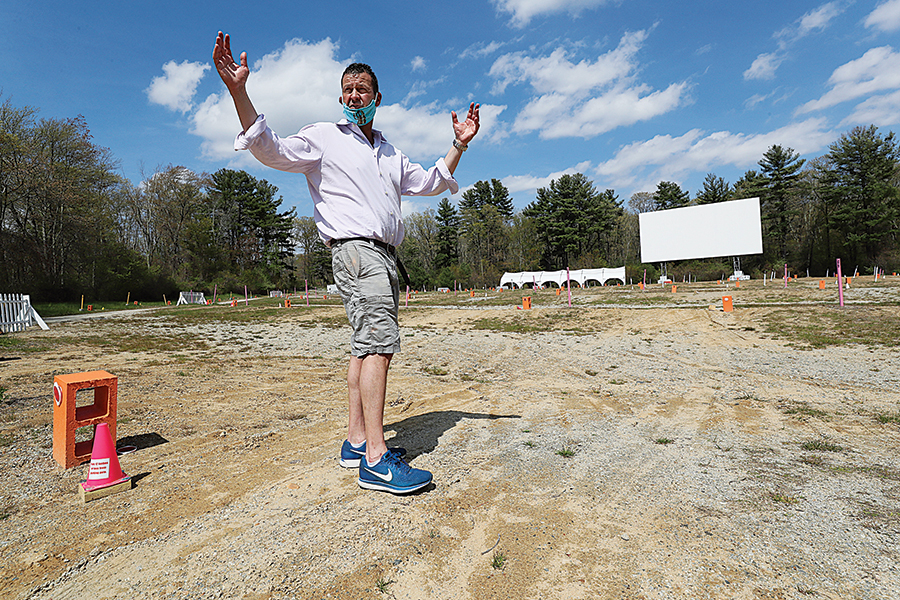
Dave Andelman at the Phantom Gourmet-owned Mendon Twin Drive-in. / Photo by Suzanne Kreiter/The Boston Globe via Getty Images
Phantom Gourmet CEO steps down after mocking Black Lives Matter protests.
To anyone without a mound of melted nacho cheese where their common sense and compassion should be, “defund potatoes, not police” is probably not the kind of wocka-wocka joke a major business owner should post on Facebook when millions of people are filling the streets to protest systemic racism and the murder of Black Americans by those entrusted to protect and serve. But it’s among the insensitive one-liners that former Phantom Gourmet cohost Dave Andelman tossed out on social media over a series of days in June, ultimately leading to public outcry, an apology, a two-month hiatus for his popular WBZ TV show, and his stepping down from the family business. (Another greatest hit: “We don’t take a knee here. This is America, not Game of Thrones.“) Andelman’s flippant, let’s-mock-the-libs buffoonery at the expense of a deeply serious equal justice movement may not have surprised those who have followed the Phantom leadership’s occasionally controversial public musings and forays into politics. At least Phantom Gourmet subsequently committed to changing its show and company culture—promises that will, hopefully, last longer than a bad tweet.
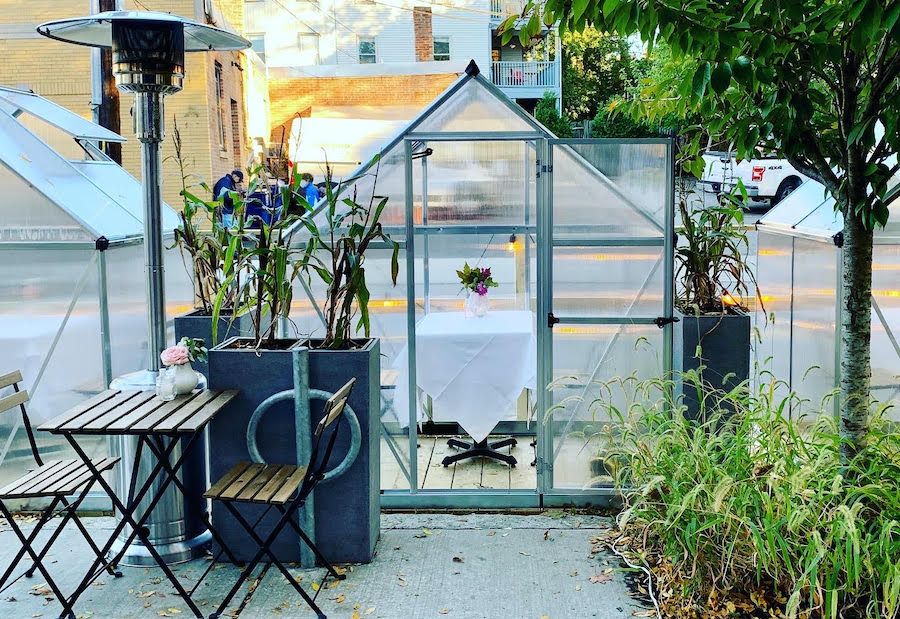
Greenhouse at Talulla. / Courtesy of Talulla
Patio dining explodes (and gets mighty creative) across Boston.
New England’s erratic weather and winters that overstay their welcome don’t always allow for a particularly protracted al-fresco dining season. This year, though, municipalities across the state made allowances to help restaurants expand their outdoor spaces and extend our fresh-air time. Boston permitted eateries using public property to keep the heat lamps burning—if they could find them, that is—until Dec. 1. (Why not longer, if mild days allow?) Meanwhile, some private spaces continue to prop up heated igloos, greenhouses, and other winterized setups even with snow on the ground. Let’s get one thing straight: Patios seats alone can’t save restaurants, especially when winter makes outdoor dining largely impractical. But as with to-go cocktails, we hope granting businesses larger patio footprints is something that could continue in general, going forward.

Chef Nusret Gokce, nicknamed Salt Bae, at the Istanbul location of his restaurant Nusr-Et. / Photo by Ozan Kose via Getty Images
Salt Bae comes to Boston with the year’s most divisive restaurant opening.
In a year when so many spots were forced to close their doors permanently or, at the very least, as a form of temporary winter “hibernation,” nearly anyone brave enough to open a new restaurant was met with a resounding round of best wishes. Chef Will Gilson’s new three-eatery Cambridge outlet, the Lexington; the O Ya team’s wood-fired new venture in Chestnut Hill, Bianca; restaurateur Ran Duan’s Brookline seafood gem, Ivory Pearl—we’ve been rooting for all of them and more. There was a much more divisive reaction, though, to the arrival of Instagram-famous chef Nusret Gökçe, better known as Salt Bae, and his over-the-top steakhouse Nusr-Et. With so many local chefs struggling to make ends meet, we found it awfully hard to watch Gökçe serve ridiculously expensive, gold-foiled steaks to (non-physically-distanced) crowds who came only because they’ve seen him posing in funny memes—and we weren’t alone. Only days after opening, and after a litany of complaints from neighbors; Nusr-Et was temporarily closed for not following COVID-era safety standards. Whether you’re a fan or not, it’s hard to deny that Nusr-Et was one of the most talked-about arrivals of the year.

Mayor Marty Walsh hands out a turkey at the American Red Cross Boston Food Pantry Thanksgiving meal distribution in Boston on Nov. 21. / Photo by Jonathan Wiggs/The Boston Globe via Getty Images
Food insecurity skyrockets across the state.
Okay, okay—this isn’t restaurants related, but it has to do with food and it’s too important to ignore: Hunger is on the rise in Massachusetts. Writing for the Boston Business Journal, Greater Boston Food Bank president Catherine D’Amato spells it out: Current stats project a 59 percent increase in food insecurity in Massachusetts, higher than any other state in the country; one in seven residents are “struggling to put food on their table”; and her organization alone is currently serving about 600,000 people per month, or twice as many as usual. It’s all an important reminder to continue supporting local hunger-relief organizations, from the work of GBFB to the food-rescue efforts of Lovin’ Spoonfuls, which gets unused food from grocery stores to in-need community organizations across the state.

It seems like just yesterday we said goodbye to the Dunkin’ double cup. Now the coffee giant has been sold to a Georgia company. Dunkin’ cup photo by Ornoth via Flickr/Creative Commons and Tilly C via Flickr/Creative Commons | Coffin via Getty Images/iphotographer | Illustration by Spencer Buell
Iconic Massachusetts brands Dunkin’, Baskin-Robbins, and Legal Sea Foods are sold.
If there was a food-world equivalent to Tom Brady ditching New England for [shudder] Florida, it might be Dunkin’ belonging to another state. And indeed, that’s exactly the case now that Georgia-based Inspire Brands has just finalized a deal to purchase the coffee and doughnuts giant—as well as its sibling, ice cream chain Baskin-Robbins—for $11.3 billion. Both Dunkin’ and Baskin-Robbins will remain headquartered in Canton, Mass., according to the Boston Globe, but it’s still kind of jarring that companies so synonymous with Masshole culchuh’ are now ultimately parented out of the Peach State. We’re similarly shook by this week’s announcement that the Legal Sea Foods restaurants have been sold to PPX Hospitality Brands, ending a 70-year run of the Cambridge, Mass.-born chain as a family-owned company. That said, our abandonment issues are tempered by the fact that Legal’s longtime president, Roger Berkowitz, will retain ownership rights of the Legal name for non-restaurant ventures, such as online retail. And although PPX is actually a subsidiary of a larger Irish firm, Danu Partners, this new hospitality-oriented branch is based in Medford and emerging as a new player in New England restaurants: Besides Legal, it also owns the Smith & Wollensky steakhouse chain and bought most of the Boston-born Strega Italian restaurants earlier this year.
